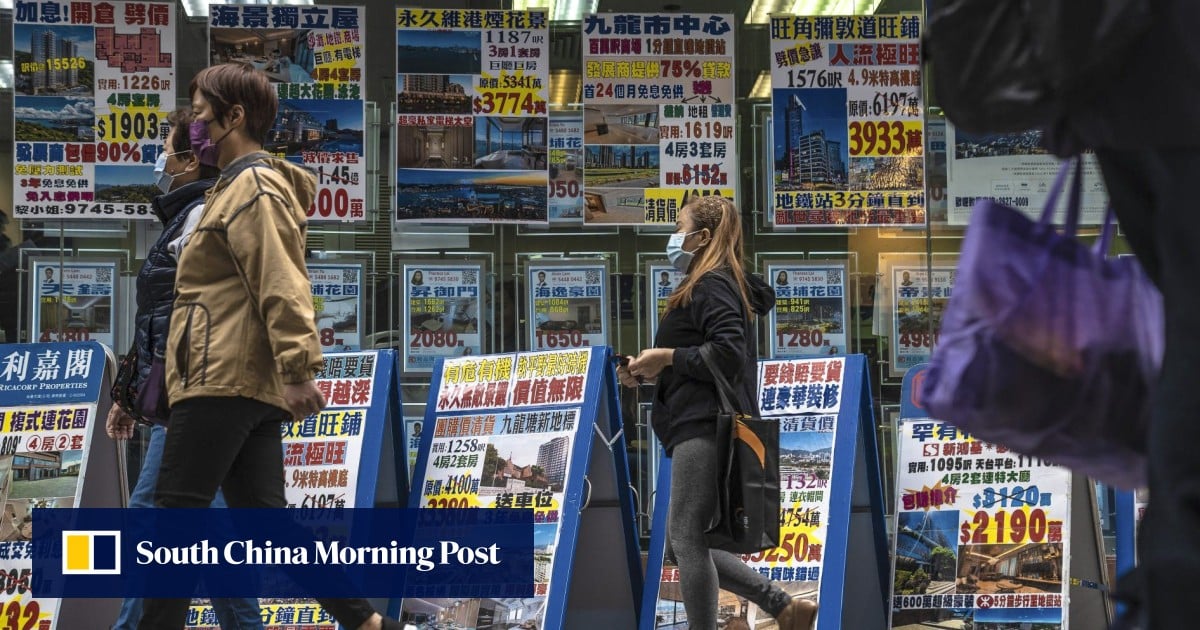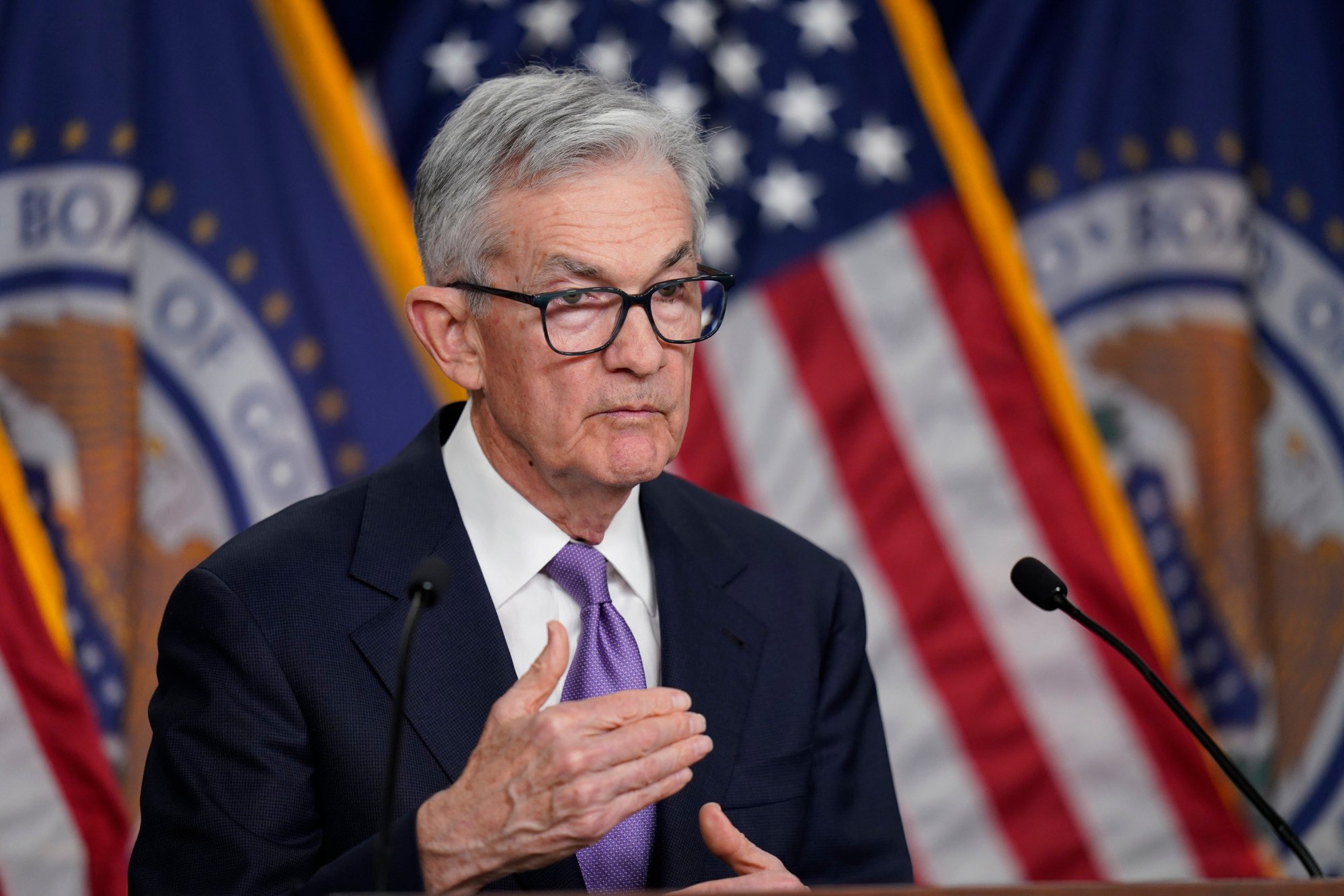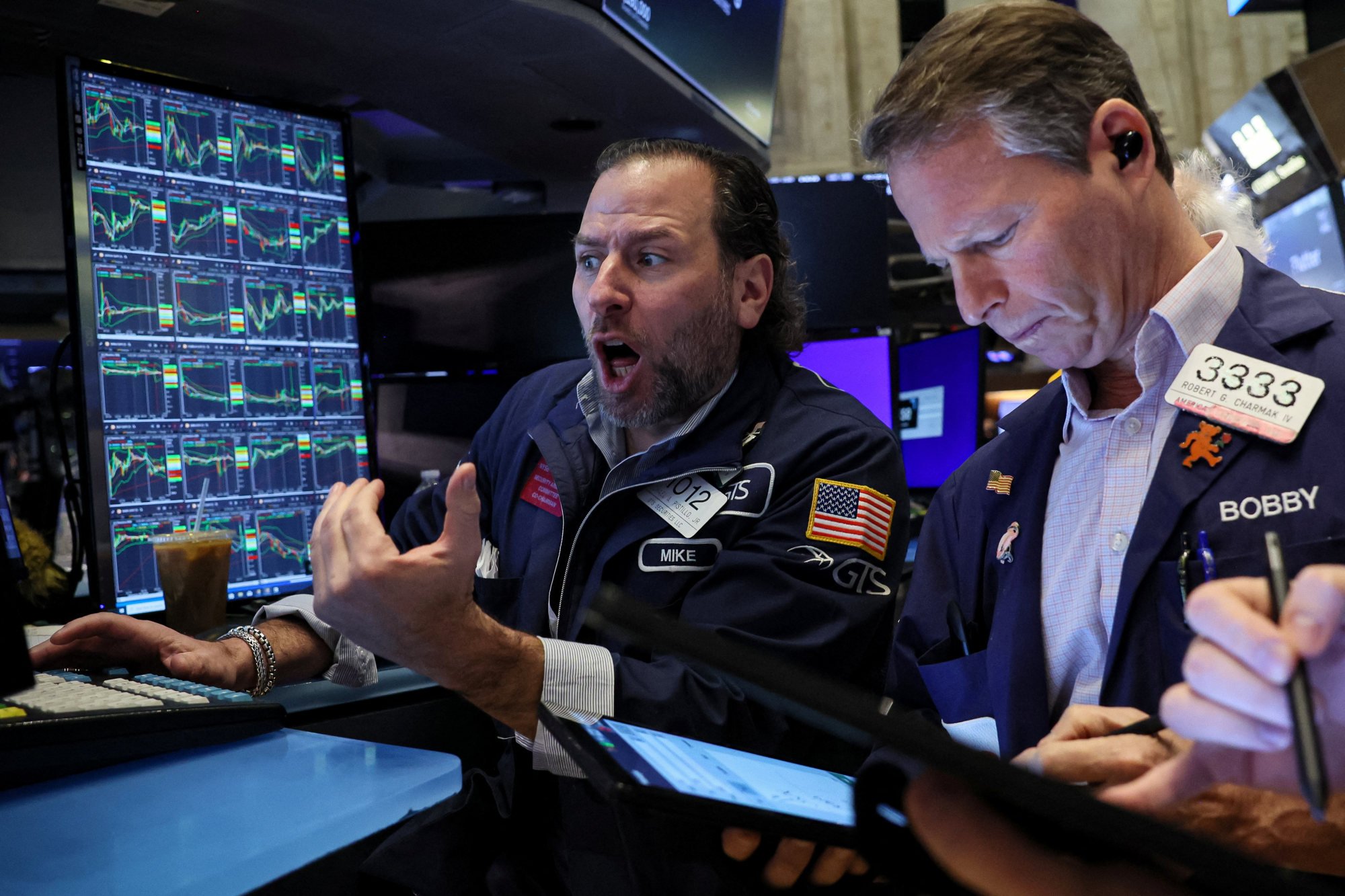
31 Jan Hong Kong holds base rate steady, after US Fed’s unanimous vote to ‘keep options open’ dashes optimism for an earlier cut
Powell’s circumspect tone indicated that the Fed was in no rush to reduce rates. That sent stocks skidding, as traders who were betting for cuts to commence in March ran for cover. The S&P500 index plunged 1.5 per cent in New York, marking the sharpest one-day fall this year.

“Oh brother,” Neil Dutta at Renaissance Macro Research said, as quoted by Bloomberg. “What exactly does ‘greater confidence’ mean? Just feels like a bunch of nonsense to get the hawks to come to a consensus.”
The HKMA has followed the Fed’s monetary policy in lockstep since 1983 to preserve the local currency’s peg to the US dollar under the linked exchange rate system.

The decision to hold rates steady was hardly a surprise, with 97.9 per cent of traders expecting no change, while 2.1 per cent of them held out for the possibility of a 25-basis point cut, according to the CEM’s Fed futures prices.
There is a 60 per cent probability that the Fed will cut its rates seven times this year, starting in March, said T. Rowe Price’s Chief US Economist Blerina Uruci before Powell’s press conference.
“The central scenario would be for a 25-basis point cut at every meeting, but admittedly cutting cycles rarely go this smoothly and it is possible that some larger cuts and pauses will weave their way into the actual Fed funds rate path this year,” she said.
US inflation slowed to 3.4 per cent in December, from the peak of 9.1 per cent in mid-2023. The hike in prices was still faster than the Fed’s 2-per cent target, but had slowed enough to give the capital markets cause for cheer.
That cut may commence in the second half, according to Franck Dixmier, the global chief investment officer of fixed income at Allianz Global Investors.
“We believe it is premature for the Fed to contemplate a change in its monetary policy,” Dixmier said before the FOMC’s decision. “Despite the massive tightening of monetary policy over the past two years, growth remains surprisingly resilient. The soft, or no landing, scenario that avoids a recession seems to be materialising.”
Fed’s attempt to turn inflation tide leaves Asian economies exposed
Fed’s attempt to turn inflation tide leaves Asian economies exposed
“Investors appear to be fairly confident that the Fed is soon to ‘pivot’ away from restrictive interest rate policy and towards rate cuts, but the timeline for this remains unclear,” Charles Schwab Hong Kong’s financial consultant Jacky Lam said before the Fed’s move. “Hopes for slashes by spring are diminishing, as recent stronger-than-expected economic data has tempered investors’ expectations around the Fed’s moves.”
Hong Kong’s commercial banks are expected to hold their prime rates unchanged in line with the steady cost of funding. It is a much-needed relief for Hong Kong’s businesses and mortgage borrowers.
Commercial banks raised their prime rate five times since last September by a total of 0.875 percentage point.
Hong Kong’s banks post bumper 2023 profits as rates swell margins
Hong Kong’s banks post bumper 2023 profits as rates swell margins
BOCHK, HSBC and its Hang Seng Bank unit raised their prime rates by 12.5 basis points in July to 5.875 per cent, while Standard Chartered Bank, Bank of East Asia, Citibank and CCB Asia increased the interest they charge their best customers by the same margin to 6.125 per cent. These levels were last seen in December 2007.
Hong Kong’s one-month interbank offered rate (Hibor), stood at 4.5896 per cent on Wednesday versus 5.5325 per cent in December. The three-month Hibor dropped to 4.7083 per cent from 5.5536 per cent over the same period, according to data published by Hong Kong Association of Banks.
Hong Kong government in November lowered its full-year forecast for Hong Kong’s economic growth to 3.2 per cent, from an earlier forecast of 4 to 5 per cent, warning that a worsening external environment, rising geopolitical tensions and high-interest rates will continue to pose challenges.
The HKMA last tightened in July, lifting the base rate by 25 basis points to 5.75 per cent, the highest level since December 2007. In total, the base rate has risen by 525 basis points since March 2022, even while Hong Kong’s economy was mired in a recession.
